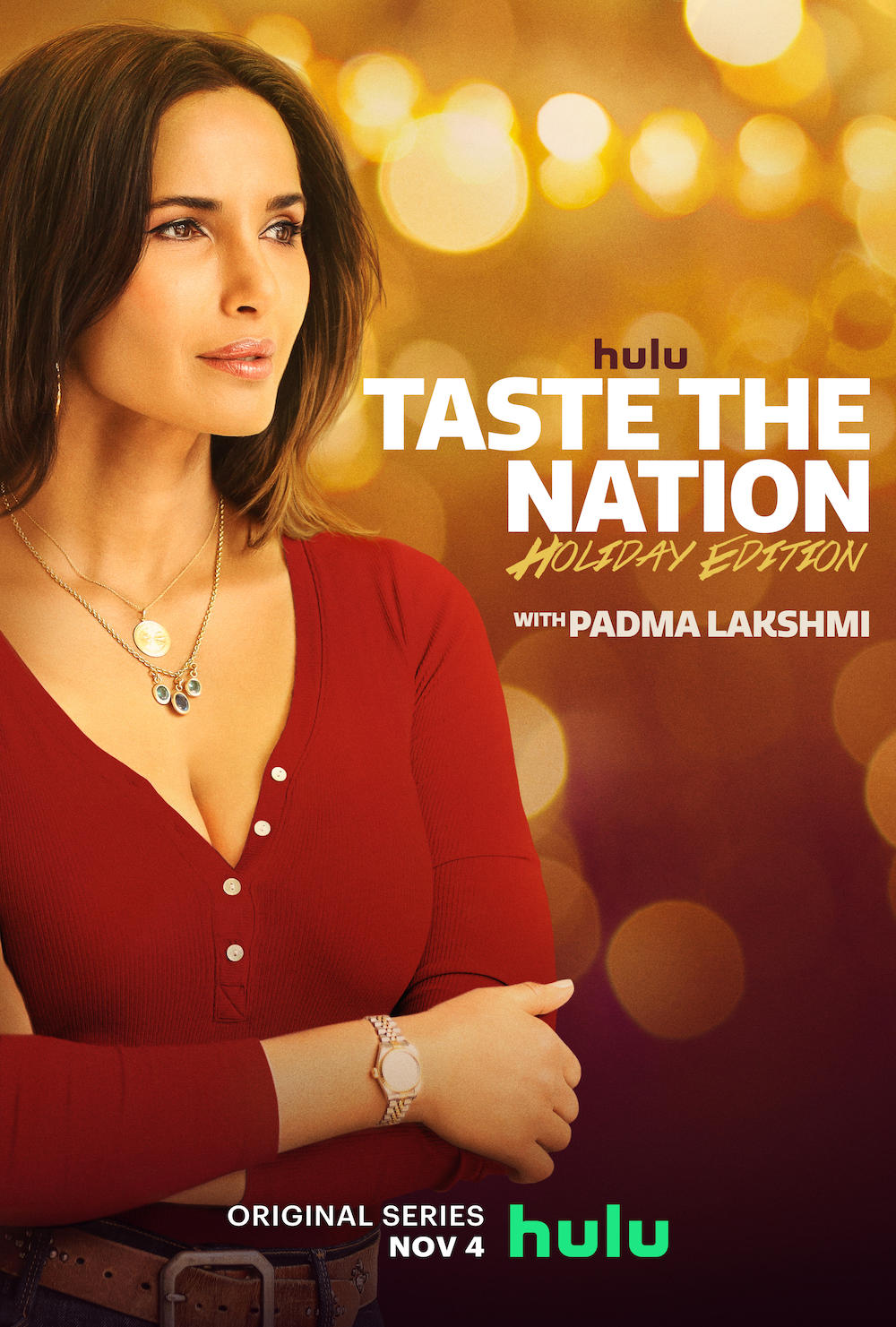Basically: “The land is your land, this land is my land” is the American paradox—Taste the Nation shows us why through our varied cultures, our cuisines, and the nation’s crimes against us.
Whenever I’m searching for an analogy for some part of life that needs to be universal, I always turn to food. I used to think that habit was juvenile, but there are few things that connect us across boundaries the way our need for nourishment does.
Taste The Nation proves food is the truth.
When I watched the original series, back in June 2020, I wrote, “Padma Lakshmi finally reclaims the idea of The Great American Melting Pot on her new Hulu Original…What she reveals is our food is our story, our dishes are our history books, and our ingredients are our roots.” In this new edition of the series, Padma explores four holidays with the communities who celebrate or are redefining them—sometimes both.

Photo: Craig Blankenhorn/Hulu
We spend Hanukkah with the Jewish community on the Lower East Side of Manhattan, at an appetizer shop where the “layers upon layers” of Jewish history in New York are revealed, and we learn to make latkes (my favorite).
In Cape Cod, the Wampanoag Nation shares the bounty of their table and their culture with us. A culture that was almost swallowed by the false myth of Thanksgiving and the ravenous maw of colonization, but is being revived by a people who have always done more than survive, they live. One way they carry on is through the fellowship of food. That’s when we learn how to make chowder the right way.
From there we travel to Miami to enjoy the flavors of Nochebuena and to immerse ourselves in the Cuban-American community’s escape from Castro’s Cuba, along with the ways they hold on to their beliefs, their identities, and themselves in this land—their other country. If you’re anything like me you’ll long for one of Uncle Cha Cha’s cocktails or a big plate of congri.

Photo: Michael Desmond/Hulu
To close out both the Holiday Edition and the season, there’s no place like Koreatown in LA to celebrate the New Year. There we learn to make teok (another favorite), and Eric Nam surprises us with a Korean-American fusion recipe for hotteok. The community there shares the history of tension between the Black-American and Korean-American communities and how the recent rise in hate crimes against AAPI people encouraged unity, and renewed pride in the fusion of being simultaneously Korean and American.
Taste the Nation: Holiday Edition is exquisite, never flinching away from the richness—whether spicy or sweet—or from the bitter roots of the American feast. And that, cheers to Padma, is a celebration.
In the End: Raise a glass with Taste the Nation: Holiday Edition because our cultures connect us and should give us all a seat at this nation’s table.
Watch Taste the Nation: Holiday Edition on Hulu on Thursday.



